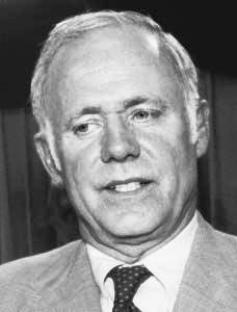One of the best examples of corporate responsibility came from a conversation I had with former Johnson & Johnson Chairman James E. Burke.

In the fall of 1982, Burke was confronted with a nightmare scenario. Seven people in the Chicago area had died after ingesting Extra-Strength Tylenol capsules that were laced with cyanide. His decision-making process, leading to the recall of all forms of Tylenol from every store in the country, has since become a textbook case on company integrity and accountability.
“I think everybody, in the long run, is motivated by trust. That anything we do – whether we’re trying to build an organization or trying to create products and services is guided by the fact that the people who are influenced – our constituencies – want to trust us. If there is a guiding moral principle in most people’s lives, I think it’s integrity.
“I think that the world is searching for trust in all of their institutions. And I think those that perform the best and continue to perform the best over time, whether they’re a parent, or a teacher, or whether they’re a business, I think we’re all guided by a desire to trust those that we’re working with.
“As I look back on Tylenol, I think that the only way that we could have done what we did was to have all of the institutions that were affected by the Tylenol poisonings believe in us. And I want to emphasize, believe in us, the company – whether it was the head of the FBI, the FDA, or the people that we spoke to in Congress or at the White House. I look back and realize how quickly the country responded to that issue. It wasn’t just what we did. The country had to respond in a myriad of ways. And they responded and listened to our advice because they trusted the institution from which that advice was coming.
“There was no lack of trust about Johnson & Johnson. There was no thought that this was something that we were doing that was only in our own self-interest. And that came from a hundred years of experience. While I was the person that had to lead and carry the message to those institutions – and I think they trusted me personally, too – I think they trusted me largely because I represented an institution that had been around for a hundred years and had earned the trust of its entire constituency.
“There was a lot of backlash from stockholders, but the way I managed Johnson & Johnson was consistent with the way I managed the crisis. I always encouraged people to fight back and to argue. I used to call it ‘creative conflict’ – that the more you allowed people to argue out issues, particularly complicated ones, the more creative the group would become because new ideas came forward that wouldn’t have come forward without it.
“We didn’t persuade everybody that we were right, in general, because so many people were involved and because this was being debated publicly. You couldn’t turn on the news without seeing it, and you couldn’t pick up a newspaper without reading about it.
“My belief is that those institutions that survive over time are those that have the better consumer franchise because the consumer, collectively, is smarter than any of us are individually. If they’re allowed to speak, and if leadership is listening to them, over time, better decisions will be made and that’s what happened to us. We were going out every single day talking to all kinds of people to get their feelings about what we were doing.
“Personally, I believed that we could save the product. We were not going to lose the business, but I never envisioned the extraordinarily positive effect on the future of that business because of our behavior. I thought we might save 60-70% of the business, and it’s probably fifteen times as big as it was, now. And I think a lot of that was the cumulative sense of trust that the public evidenced by buying our product. I think the experience confirmed my own deep belief that you can do well by doing good. That’s a buzzword phrase, but I think it’s true. I think that the more we do that’s right, the more successful we are as individuals and as institutions.”
During the course of several conversations with tobacco insider Jeff Wigand, I learned that one of the inspirational moments of his life came from James Burke’s actions regarding the Tylenol case. At the time, Jeff was working at Johnson & Johnson.
Comments










